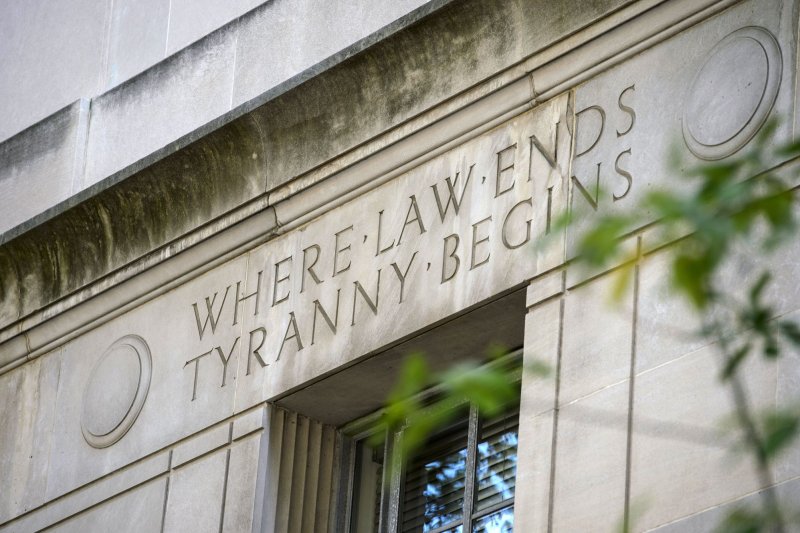1 of 4 | The Justice Department is trying to keep an affidavit related to the search of Donald Trump's Mar-a-Lago home in Florida private to protect witnesses and other aspects of the case. Photo by Bonnie Cash/UPI |
License Photo
Aug. 18 (UPI) -- A federal judge in Florida ordered the Justice Department on Thursday to redact portions of the affidavit used to get the search warrant for Mar-a-Lago, presuming that some of it can unsealed.
Magistrate Judge Bruce E. Reinhart said at least portions of the affidavit could "presumptively be unsealed." He ordered the Justice Department to send him proposed redactions under seal by noon Aug. 25.
The department has opposed releasing the document, saying it would compromise the investigation into former President Donald Trump's handling of potentially classified documents that he took with him to his Palm Beach, Fla., residence when he left the White House.
Reinhart gave the government a week to redact any portions of the affidavit they believe will harm their ongoing investigation that led to the search.
Prior to the hearing, the department had proposed redactions in case Reinhart allowed a partial unsealing.
The department moved to unseal the search warrant and FBI property receipt from the search on Aug. 11.
In a 13-page legal filing this week, Justice Department lawyers called the affidavit a matter of national security and warned Reinhart against releasing it.
"If disclosed, the affidavit would serve as a roadmap to the government's ongoing investigation, providing specific details about its direction and likely course, in a manner that is highly likely to compromise future investigative steps," the filing said.
The department also argued that making the affidavit public would expose government witnesses who are involved in the investigation.
The news outlets asking Reinhart to unseal the affidavit -- which include CNN, The New York Times, Washington Post and Wall Street Journal -- are doing so on the grounds of widespread public interest and the public's right to know following remarks from Trump that are at odds with the Justice Department's account.
Either side can appeal the ruling.
![]()
"Faithful adherence to the rule of law is the bedrock principle of the Justice Department and of our democracy," U.S. Attorney General
Merrick Garland said after the FBI search last week. Pool Photo by Evelyn Hockstein/UPI
Last week, U.S. Attorney General Merrick Garland stopped short of releasing the affidavit because he said it would reveal probable cause that led prosecutors to believe a crime had been committed, and that evidence might be found at Mar-a-Lago.
The warrant revealed an investigation that's focused on potential crimes involving obstruction of justice and violations of the Espionage Act.
The Aug. 8 search of Trump's home caused a national uproar among Republicans who say the search and the case are politically motivated. Some supporters have called for violence against federal agents. FBI Director Christopher Wray has condemned the threats against agents from far-right corners of the Internet.
Trump has also called for the immediate release of the affidavit and ranted against the FBI and Justice Department on his social platform Truth Social, including an accusation that agents took three of his passports.
The FBI issued a statement Monday saying that it was working with Trump's attorneys to return the passports and evidence that does "not need to be retained for law enforcement purposes."
At Mar-a-Lago, agents seized 11 boxes of documents, including at least one set of papers that had been categorized as top secret, classified or sensitive. The investigation is also seeking to determine whether highly secret information about the U.S. nuclear arsenal were part of the documents taken to Florida.
















